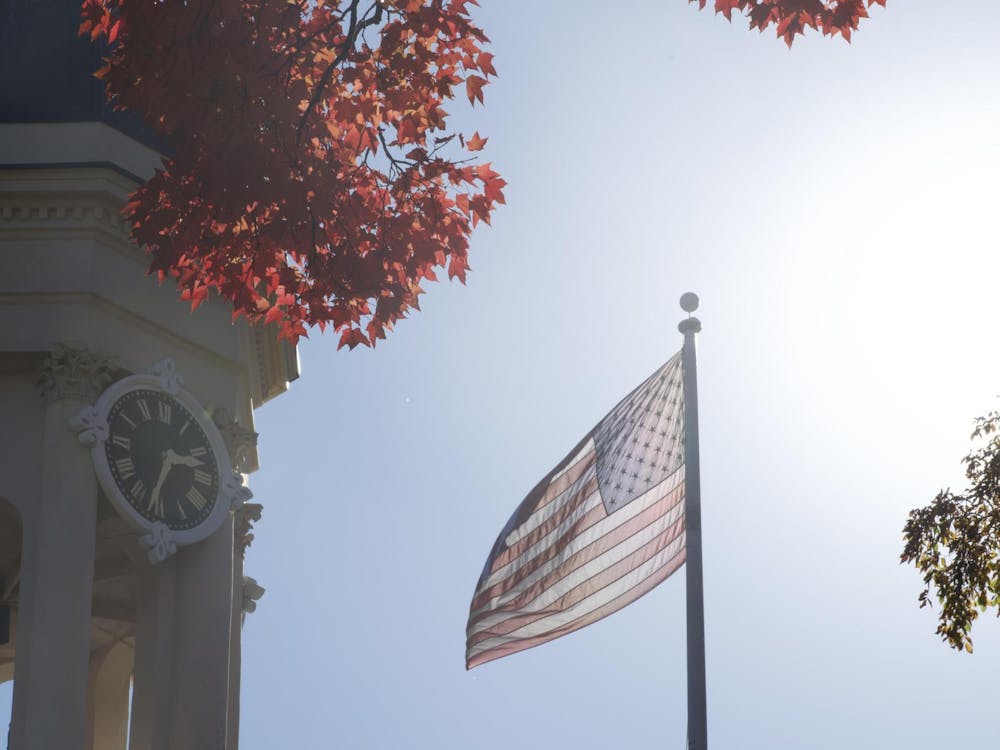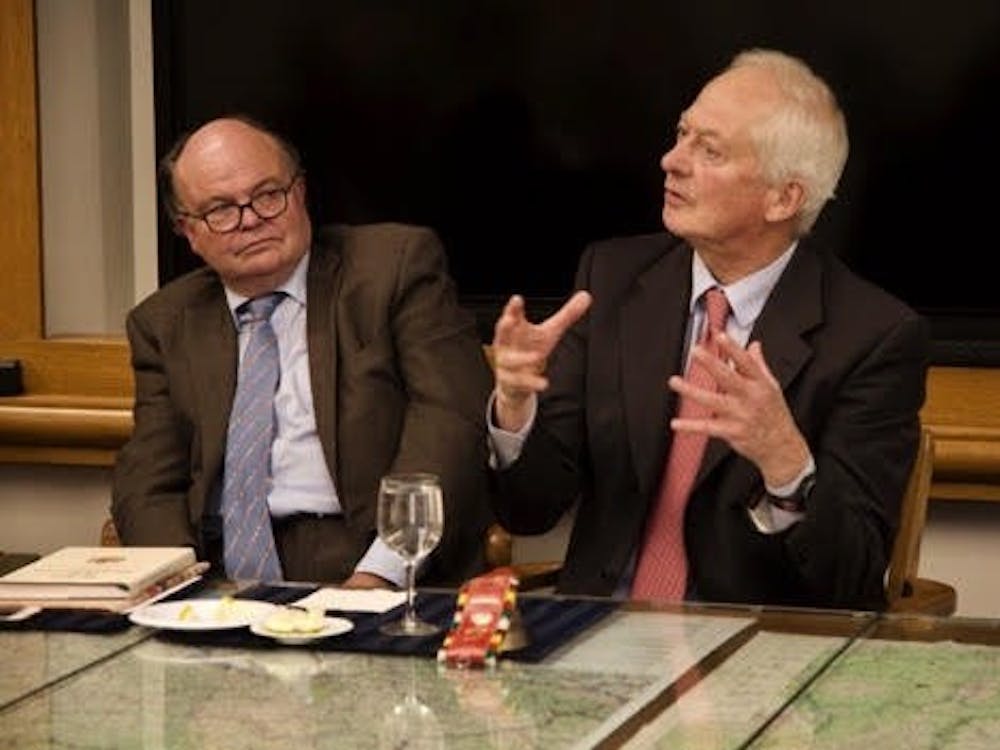A 132,000-page FBI file. One year in prison under dubious circumstances. Thirty-eight years of government surveillance. An unrevealed assassination plot. While it may seem the stuff of spy novels and conspiracy theories, the story is all too familiar to civil liberties activist Frank Wilkinson.
Wilkinson, who will be speaking at the University today, is the executive director of the First Amendment Foundation and its political arm, the National Committee Against Repressive Legislation. For the past half century, Wilkinson has been an active proponent of civil liberties and First Amendment protections.
His advocacy of First Amendment rights began in 1958 when he and the American Civil Liberties Union challenged the House Un-American Activities Committee, most famous for its McCarthy-era interrogations. But the roots of his activism reach back much further.
After college, Wilkinson embarked on a trip that would change his life. The youngest son of Methodist parents and a resident of Beverly Hills, Calif., Wilkinson had always planned on becoming a Methodist minister. But after his graduation from the University of California-Los Angeles in 1936, he decided to spend Christmas in Bethlehem. There he saw poverty that he never knew existed.
"I couldn't even enter the Church [of the Nativity] because of the hundreds and hundreds of beggars, begging for even one-tenth of a penny," he recalled in an interview Monday. The experience led him to doubt the effectiveness of organized religion in helping the poor.
Instead of returning to California to enter the seminary, Wilkinson bought a $10 bicycle and spent the next several months traveling throughout the Middle East and Europe, sleeping in the streets, in refugee camps and even in the Warsaw ghetto to get a sense of the world's poorest societies.
After he returned to the United States, Wilkinson was confronted by Monsignor O'Dwyer, a Catholic priest and the director of charities for the Los Angeles Archdiocese. O'Dwyer, disregarding Wilkinson's cynicism about religious organizations, told him of his plans for a campaign to clear the slums of Los Angeles.
To which Wilkinson asked: "What are slums?" O'Dwyer drove Wilkinson only eight miles from his Beverly Hills home, giving him an extensive tour of Watts.

"The poverty there was equal to almost anything I'd seen abroad," Wilkinson recalled. He said he immediately signed on board.
Wilkinson said his FBI file was created in 1942 when, as a secretary for the Los Angeles Citizen's Housing Council, he and other activists protested the local government's decision to racially segregate the housing district. Though the housing authority caved to the group's demands, Wilkinson's efforts caught the attention of the FBI, which would continue to monitor him for nearly 40 years.
Wilkinson's activism continued through the next two decades, raising the suspicions of the House Un-American Activities Committee. In a 1952 local government hearing he was asked: "What organizations, political or otherwise, have you belonged to since 1929?" Though he was not a member of any party, Wilkinson refused to answer on principle, believing the question was an attempt to undermine slum clearance plans by implying that they were Communist inspired. He was subpoenaed by California's Un-American Activities Committee and fired from his job when he again refused to answer.
But this was not the end of Wilkinson's problems with the government. In 1958, after the FBI had called before HUAC a witness who denounced Wilkinson as a Communist, he was subpoenaed and called to testify before the committee. He again refused to speak, charging the committee with violating the First Amendment in its investigation of "un-American" activities.

"The situation was so unfair that somebody had to fight. I chose civil disobedience and was willing to risk jail in order to make my point," he said in an interview. Wilkinson was legally represented by the ACLU, which also sponsored activist Carl Braden in a companion case.
Both men were charged with contempt of Congress, and the case was taken to the Supreme Court.
Though Wilkinson lost in a 5-4 decision, he said was pleased. "We had only expected to get one, maybe two votes," he said. "The fact that it was so controversial was wonderful."
Wilkinson and Braden were arrested and jailed for one year. Later documents released by the FBI revealed that the primary witness who had declared Wilkinson a Communist in 1956 was not considered eligible by the FBI due to "emotional instability" and had been discredited after an earlier testimony in 1955. The information was not disclosed to the Supreme Court.
Since 1961, Wilkinson has continued his crusade for First Amendment rights and the protection of civil liberties. Wilkinson and the National Committee to Abolish HUAC (the precursor to NCARL) continued to protest HUAC until its abolition in 1975.
In 1987, after a lengthy lawsuit led by the ACLU, the FBI admitted that Wilkinson had lacked "willingness or capability of doing anything to violate the national security of the United States." In addition, his 132,000-page FBI file was released to him, revealing the alarming extent of the surveillance, both legal and illegal, to which he had been subjected. Perhaps most frightening was written evidence that the FBI had known about a 1964 assassination plot against him. Rather than informing Wilkinson of the impending danger, the FBI had planned to send an agent to oversee the murder.
In today's speech — to be held at 4:30 in Robertson Hall Bowl 5 — Wilkinson plans to share his experiences and discuss the continuing need for more checks on the FBI. The 1994 Anti-Terrorism and Effective Death Penalty Act, which had prohibited the FBI from committing further First Amendment violations, was repealed by Congress in 1995.
"It is so dangerous that the FBI had no statutory checks under J. Edgar Hoover. But now the FBI today can do what the FBI did in his era," Wilkinson said.
"When the First Amendment, when civil liberties, are under attack, we must fight back. A lot of people lose and don't fight back. I chose to fight."







